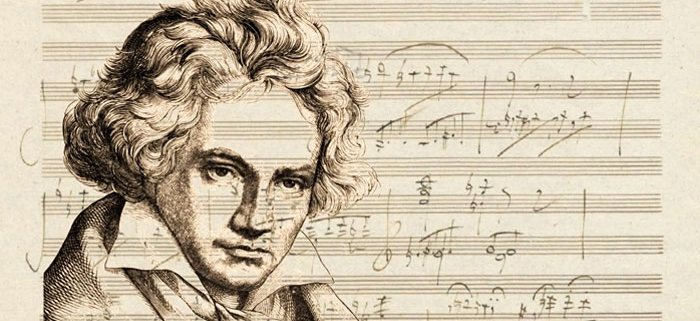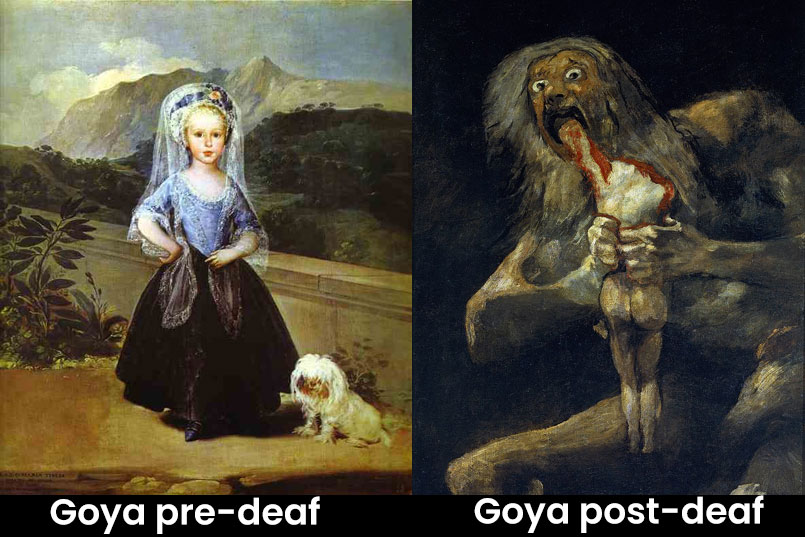Five deaf people who changed the world
Hearing loss may be a disability, but it certainly doesn’t stop people from living a full and influential life. In fact, many deaf people have changed the world, either because of, or in spite of, their hearing loss.
Here are five deaf people who changed the course of society.
Hellen Keller
Possibly the most famous and inspiring deaf person in history, Hellen Keller was born June 27, 1880, in Tuscumbia, Alabama. She was only 19 months old when an illness made her blind and deaf, leaving her unable to communicate with her parents.
Anne Sullivan became Helen Keller’s teacher in 1887, working in a role that today is known as an intervenor. Helen finally learned that things have names when Sullivan had the famous “water” breakthrough, fingerspelling “water” into Helen’s hand while pumping water over Helen’s hand for her to feel.
Following this breakthrough, she became a powerful activist for disabled rights. At 10 years old she could read and write brail, and was the first deaf and blind person to obtain a Bachelor of Arts Degree.
She published 12 books and founded the Hellen Keller International (HKI) organization, supporting blind people. Not only was she an advocate for deaf rights, but also campaigned for women’s suffrage, labor rights, pacifism and birth control.
Thomas Edison
Born in 1847, Thomas Edison is considered the most famous American Inventor of all time. Edison is best known for inventing the light bulb, phonograph and Motion Picture, but what’s not so well known about him is the fact he was largely deaf for most of his life.
Edison had problems hearing from early childhood and was thought to be completely deaf by the time he turned 18. It’s not 100% known why he lost his hearing, but it has been attributed to a bout of scarlet fever during childhood and recurring untreated middle-ear infections.
As he got older, Edison believed his hearing loss allowed him to avoid distraction and concentrate more easily on his work.
Alexander Graham Bell
Another famous inventor that most people don’t know was deaf. There’s a layer of irony to Alexander Graham Bell’s hearing loss because he invented the telephone. Bell’s mother and wife were both deaf, his father pioneered deaf education, and he himself was also a deaf educator, but his methods continue to cause controversy even to this day.
Even though he married a deaf woman, he strongly opposed intermarriage among deaf people.
A eugenicist, Bell even tried to pass legislation to stop deaf people from marrying each other, fearing that it would somehow “contaminate” the human race, even though most deaf people are born from hearing parents.
Francisco Goya
By the time Francisco Goya died in 1828, he had established himself as one of the greatest artists of modern times. When he was 46 years old, he developed a mysterious illness that nearly killed him. We now think it was probably the mumps virus, but having survived it, he found himself completely deaf, something he would live with for the next 35 years.
Goya’s artwork and life changed dramatically after that. He was forced to resign his teaching post at the Royal Academy in Madrid, and became somewhat of a recluse.
His artwork went from light, joyful portraits to dark, nightmarish works, but many experts believe it was his reliance on reading people’s expressions instead of hearing them that made him a true master of expression.
Ludwig van Beethoven
From one artist to another, there are not many people alive who don’t know the name Beethoven.
He began to lose his hearing gradually, from about the age of 28, telling the English pianist Charles Neate that his hearing loss came from a fit he suffered in 1798 induced by a quarrel with a singer.
In the early years of his hearing loss, Beethoven wrote to his brothers telling them he had even considered suicide because of it, but that he resolves to continue living “for and through his art”.
Beethoven’s Ninth Symphony, composed after he’d lost his hearing, is considered one of the greatest classical pieces of all time. Other notable pieces include Fur Elise, the Fifth Symphony and the Moonlight Sonata.





Leave a Reply
Want to join the discussion?Feel free to contribute!